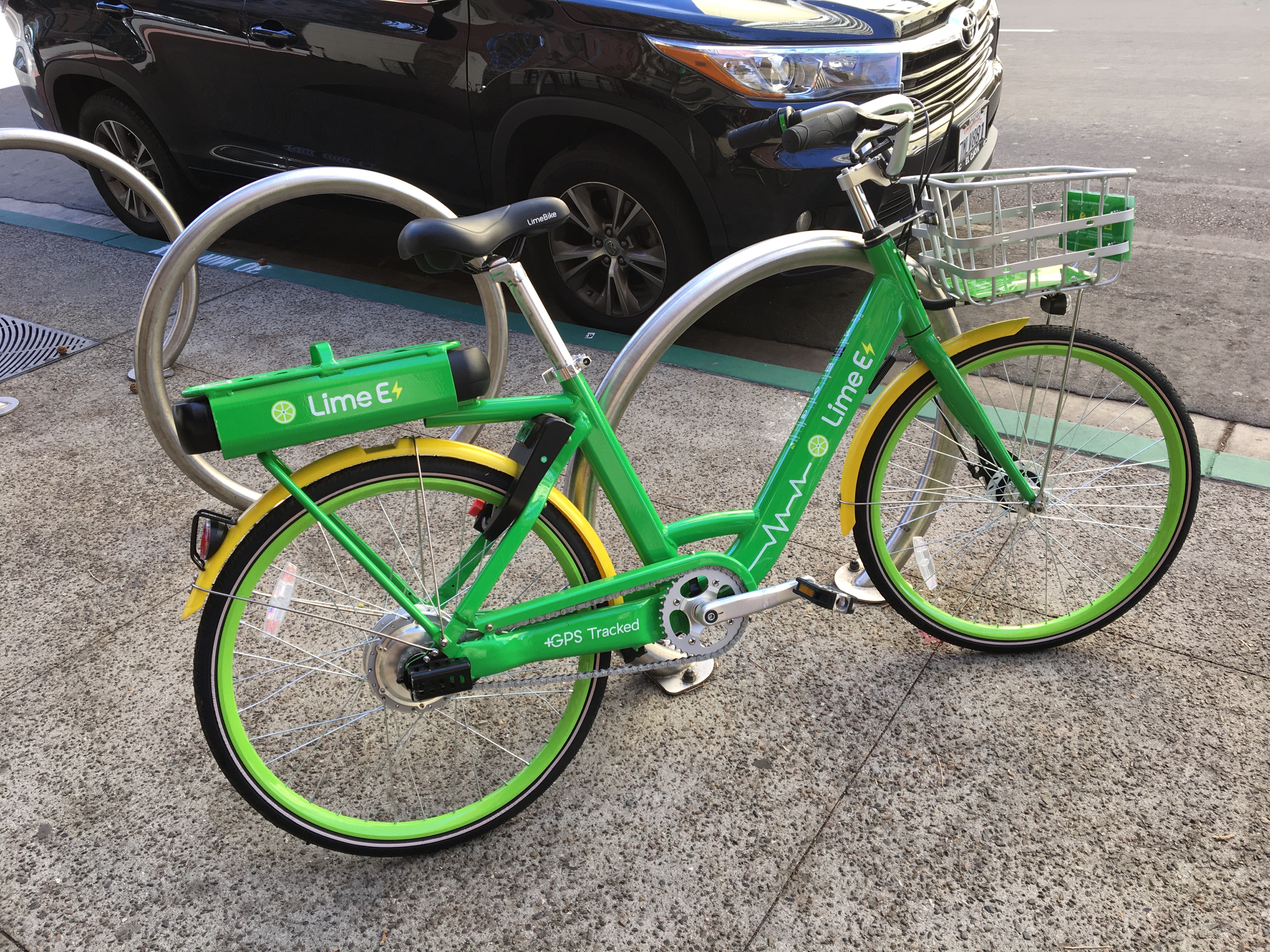From Plantetizen:
San Diego Merchants Call for Halt to Dockless Bikeshare Operations
Public bikeshare arrived in San Diego in 2014. Last month, three companies unleashed thousands of dockless bikes, cluttering sidewalks in three business districts to the chagrin of merchants who want a time-out so the city can develop regulations.

Discover ® Bike, operating in partnership with the city of San Diego, was the first to offer bikeshare in California’s second largest city, with docking stations opening on October 30, 2014. Customers knew where to find bikes and where to drop them off. Life was orderly in the bikeshare business.
Then came dockless bikeshare companies LimeBike and Ofo on February 15. A week later, Mobike arrived. Santa Monica-based Bird, maker of electric (stand-up) scooters, beat them all, arriving in mid-January.
 [San Diego Union-Tribune video and news article: “Is Southern California’s ‘dockless’ electric scooter fad a public safety hazard? Mark Platte and environment reporter Joshua Emerson Smith discuss the abundance of ‘dockless’ bikes and electric scooters in San Diego.” March 6.]
“Merchant groups from the Gaslamp to Mission Hills and La Jolla have expressed frustration with the dockless bikes since thousands of them began arriving…,” reports David Garrick for the San Diego Union-Tribune on March 8.
[San Diego Union-Tribune video and news article: “Is Southern California’s ‘dockless’ electric scooter fad a public safety hazard? Mark Platte and environment reporter Joshua Emerson Smith discuss the abundance of ‘dockless’ bikes and electric scooters in San Diego.” March 6.]
“Merchant groups from the Gaslamp to Mission Hills and La Jolla have expressed frustration with the dockless bikes since thousands of them began arriving…,” reports David Garrick for the San Diego Union-Tribune on March 8.
They are complaining that bikes are strewn about the sidewalks of high-traffic business districts and that community leaders got no notice the flood of bikes was coming, depriving them of a chance to weigh in on possible regulations.
“We completely understand the concept of a dockless system, however there needs to be more control and order in communities that are highly congested and have high pedestrian usage,” said Chris Gomez, manager of the Little Italy Association.
The new bikeshare operators have supporters in the environmental community who welcome the new bikes, seeing them as alternatives to motor vehicles.
“They have become an overnight sensation,” said Nicole Capretz, executive director of Climate Action Campaign. “It has changed everything about how people view our transportation future.”
Origins of the problem
“San Diego’s dockless bike experience has been more of a free-for-all than in most cities, because San Diego couldn’t make an exclusive deal with one operator without violating a previous exclusive deal with a rental company that requires bikes to be returned to docking stations,” explains Garrick.
Story continues here.
Price Tags: So what happens if (when) dockless bikes show up in Vancouver? Can the City regulate them, or are we in the same situation as San Diego – committed to a contractual relationship with Mobi that prevents approving any competition (and hence regulation) of dockless bikes?













From what I understand, people end up riding bikes a lot.
I was in Seattle last weekend and you had to weave through bikes on the sidewalk downtown. Not a lot of foot traffic when I was there but I couldn’t imagine that situation in downtown YVR…
The City of Vancouver, when discussing dockless bike share, was interested in the ability of the bike software and sensors to have ‘exclusion zones’ so that there was some control of where dockless bikes could be parked.
One system I looked at (Dropbike) charged a different rate whether you dropped the bike in other than a virtual docking zone. It didn’t need a special rack, it just needed to be in a place where it could be expected to be. That is a step forward from the ‘drop it anywhere’ approach that some other cities are dealing with. Still not as specific as dedicated docking stations.
I have to assume that over time a) bikes will to accumulate in the places where people most need them; b) At least one company will go broke; c) excess bikes will be removed from inventory, or stolen and shipped elsewhere.
Should be fairly self-regulating. Also, a lovely example of a government using old rules to manage a new but different situation.
Bikes are repositioned constantly, whether with docking or dock less bike share. The operators analyze use and predict demand, so as to ensure the right bike locations.
Like everything in the universe, it can be good or bad depending on how it is used.
What Seattle did before the dockless bike companies came in, was set some rules to how they should operate.
https://www.seattlebikeblog.com/2017/06/09/city-releases-draft-bike-share-pilot-permit-list-of-interested-companies-grows-to-ten/
They also give instructions to the users on what to do and what not to do.
https://www.seattlebikeblog.com/seattle-bike-share-guide/
I was just in San Diego and used limebikes (and their electric scooters) to get around. The dockless bikes were great and I hope they show up in Vancouver soon – if Mobi won’t expand south of 16th, we should encourage other companies to fill those gaps.
Likewise I was just in Seattle and used this system. Wonderful. Dockless is 100% the way to go. And no stupid helmets 🙂